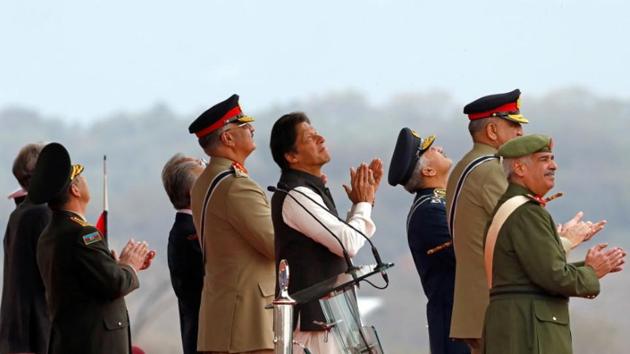Pakistan is on a path of its own
Downturns in relations with India often have their origins in the internal civil-military equations in Pakistan and this is a factor which we have no real policy instrument to deal with
A new government with a massive mandate beckons us forward, enables us to be ambitious. After all, nothing ventured, nothing gained. This applies to the entire spectrum of foreign policy and, in particular, to areas where policy formulation is most critical and challenging: our neighbourhood. Being forward looking is both a virtue and a necessity. However, with regard to our relations with Pakistan in particular, this principle has to be moderated and tempered by another. To borrow from William Faulkner: “The past is never dead. It is not even past.” So the new government will face the twin pulls of crafting policy through these two opposing polarities and principles each of which is internally and wholly consistent.

A flashback over the past five years presents a snapshot of India-Pakistan relations as a whole. The invitation to the then Pakistan Prime Minister Nawaz Sharif to attend the swearing-in of the new government in May 2014 seemed a real leapfrog into the future because, as is said, a canyon needs an instinctive single leap of faith since two are not possible. Similarly, December 2015 suggested a tipping point when meetings first between national security advisers (NSAs), and then foreign ministers, were capped by a brief visit by Prime Minister Narendra Modi to Lahore. The details are less important than the political statement that emerged: that the prime minister of India was prepared to invest enormous political capital in the India-Pakistan relationship. Terrorist attacks at our forces in Pathankot, Uri, Pulwama and others encapsulate the other side of the story and underpin all the difficulties of framing policy on the basis of forward looking first principles howsoever valuable they may be in themselves.
Looking ahead, two issues seem central. The first is internal change in Pakistan as it entered a long crisis from 2006-2007. In retrospect it would appear that many of the difficulties of crafting and then sustaining a Pakistan policy by India emerged from that crisis. So while a policy could be made, and it appeared sensible enough, its implementation was subject to forces not in our control because they were internal to Pakistan.
Some aspects of that crisis have receded and Pakistan’s internal security situation has certainly improved in the second half of the current decade as compared to the first. Yet, new fronts have opened up. The flux in Afghanistan offers to Pakistan numerous tactical gains but the outlook in any medium or longer term is going to be more sombre. The economic situation in Pakistan remains dire. But it is in the realm of politics that the bigger problems lie. Here, notwithstanding his personal charisma and the fact that he built the ruling party up from scratch, Prime Minister Imran Khan seems strangely diminished. One example of this was in the removal of the finance minister in the midst of a protracted negotiation with the International Monetary Fund (IMF). Managing the fallout of the IMF loan conditionality will test and strain PM Khan given the welfare state promises he was elected on.
And then there is the long shadow of the military despite the cacophony of “all is well” and “all on the same page”. It is not necessary to look for shadows everywhere but as political and social conflict sharpen, usually the impact of civil-military issues become more visible. This equation is of enormous importance where relations with India are concerned yet there is a fundamental unpredictability to it. The army chief’s tenure ends in November and the run up to that period will see the maturing of other fermenting issues: in Afghanistan, in relations with the United States and, most all, in Pakistan itself as coping with the economic symptoms of a structural crisis will take its toll. It is useful to recall that the origins of India-Pakistan downturns often — not always, but often — have their origins in the internal civil-military equations in Pakistan and this is a factor which we have no real policy instrument to deal with.
The second issue is to reflect on the nature of Indian policy itself. Dialogue, normalisation, stabilisation, peace process and conflict resolution have often coalesced. Each of these is, however, a different strand and some extent of disaggregation or internal separation and then sequencing appears desirable even if only at a conceptual level. This is at least the conclusion that arises from looking at the diplomatic history of the dialogue process over the past two decades through its different incarnations and through numerous fits and starts.
The historian Eric Hobsbawm had famously dated the end of the 20th century to 1989. If we accept this bifurcation, the 21st century seems to have left Pakistan behind. The last time India went to the IMF was in 1991. In the period since, the latest IMF loan to Pakistan is its ninth. This is only one indication of the different orbits both countries now inhabit. Yet it is also necessary to guard against the temptation of graduating beyond our neighbour by recalling the compulsions of geography. That is as much a lesson of history as any other.
TCA Raghavan is a retired diplomat and currently director general, Indian Council of World Affairs
(This is part of a series of articles on India’s priorities as we head towards 75 years of Independence)
The views expressed are personal






